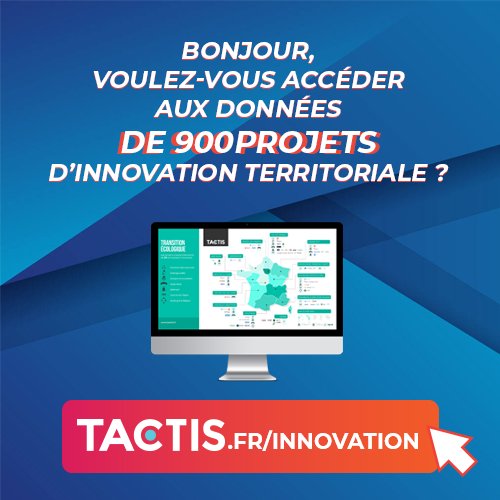What is civic tech?
Civic tech is an ecosystem of digital services and tools aimed at strengthening civic and democratic engagement and participation. A profusion of devices and solutions have emerged over the past ten years: citizen relationship management tools, applications for evaluating and contributing to public policies, online petition platforms, consultation sites, and more. The initiatives vary in both their means and their purposes.
For its proponents, the benefits of civic tech are numerous:
- contributing to better citizen information,
- improving institutional transparency,
- fostering the emergence of new collaborations between citizens and institutions,
- facilitating the mobilization of public opinion,
- participating in the development of tools to improve the quality of public debate and encourage citizen participation.
The ultimate goal? To significantly expand the number of citizens involved in public decision-making in order to improve its effectiveness.
A growing number of local and national initiatives
The Grand Débat National allowed for a nationwide test of a consultation process based on digital tools—an online platform collecting opinions and proposals—and physical tools—lists of grievances, local debates, and citizen conferences. The online platform collected nearly 2 million contributions, which can be considered a success.
However, there is still significant room for improvement. In its report entitled Civic Tech, Data and Demos (2019), the National Commission for Information Technology and Civil Liberties (CNIL) notes that the organizers of the Great Debate should have requested more information from participants to assess their representativeness. The lack of information on participants prevented any authentication and allowed interest groups to partially divert the consultation from its initial objectives.
At the local level, the impact of civic tech on projects led by public authorities is concrete and visible. The most significant trend in recent years is probably the development of participatory budgets. There are numerous options for implementing a participatory budget. In Angers, for example, the city has chosen a hybrid system between face-to-face and digital for its participatory budget (annual budget of 1 million euros).
On the digital side, the city relied on the Decidim platform, based on open source principles. Free access to the source code allows for analysis of the platform's functional and algorithmic mechanisms, ensuring transparency regarding data analysis and exploitation methods. On the in-person side, the participatory budget implementation involved 22 polling stations as well as an "agora" that allowed candidate project leaders to present their initiatives over three weekends. These debate spaces not only enrich the consultation process but also provide a more focused framework for the proposed projects.
Combining digital and in-person: a must to ensure no one is excluded
While civic tech represents an opportunity to reach audiences who don't necessarily have the time to get involved in local political life, combining it with an outreach program seems essential today for several reasons.
A digital system alone excludes a portion of the population. According to the Digital Society Mission, 13 million French people remain alienated from digital technology: they rarely or never use the internet, and feel uncomfortable with its uses. Among them, 6.7 million never connect to the internet. So, what value can we place on online participation when a portion of the population cannot contribute? So, in order to exclude no one, it is essential to offer participatory democracy systems based on both digital and face-to-face technology.
Enriching the debate: Meetings allow for the organization of discussion sessions that are conducive to the co-construction of new ideas. These sessions allow both politicians to clarify their ambitions for the region and citizens to express their expectations and needs. These sessions also create open spaces for reflection, allowing new solutions to emerge based on collective intelligence.
Furthermore, it is necessary to consider these face-to-face meetings as spaces for mediation, during which everyone can express their approach and share their experiences. This sharing helps foster support for a project while testing its relevance in the field. Finally, these face-to-face exchanges and the reflections expressed there can be capitalized on the online platform and shared with a wider audience, strengthening the synergies between digital technology and "traditional" meetings.
Personal data: between the issue of protection and guarantee of representativeness
Civic tech tools collect sensitive data, the use of which is regulated by the European General Data Protection Regulation (GDPR). Civic tech tools face conflicting imperatives: on the one hand, participants' anonymity must be preserved to guarantee their freedom to vote, but on the other, sufficient information must be collected to ensure that the online consultation is not preempted by an interest group that is unrepresentative of the population.
Similarly, to simplify access to online participatory democracy tools, authorities may be tempted to offer simple logins such as Facebook Connect or Google Connect, which, if misconfigured, allow companies to collect highly sensitive data.
One way to address the issues surrounding personal data is to promote decentralized identity management and the use of trusted third parties. This will allow the sponsor of a consultation to authenticate participants without identifying them.
Tactis supports local authorities to ensure the success of their Civic Tech projects
Numerous startups have invested in the field of participatory democracy and offer innovative tools to boost local public action. Tactis offers support to public authorities in their Civic Tech projects so that they can make informed choices throughout the entire implementation phase: defining needs, developing the strategy, drafting the technical and specific clauses, monitoring and evaluating the solutions implemented, and conditions for sharing these tools between multiple territorial levels.
External sources used to write this article:
https://www.cnil.fr/fr/civic-tech-donnees-et-demos-une-exploration-des-interactions-entre-democratie-et-technologieshttps://www.lemonde.fr/pixels/article/2016/10/25/civic-tech-vers-une-boite-a-outils-de-la-democratie-numerique_5019800_4408996.html
https://www.courrierdesmaires.fr/80770/le-budget-participatif-dangers-retour-dexperience

Nicolas Potier
Contact Nicolas Potier
Do you have a question about civic tech? Need some clarification on a future project? Send an email to Nicolas Potier, Associate Director at Tactis.


